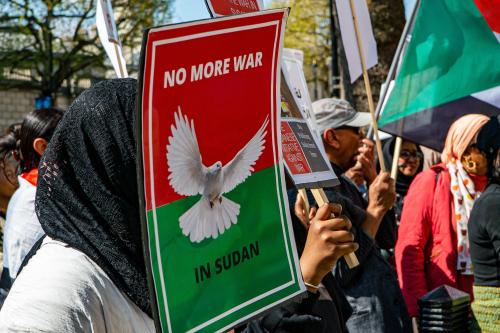Despite the efforts made, the negotiation on Syria’s future has not led to the expected results. The time has come to change methods. The negotiation of the peace agreement on Cambodia may serve as a useful reference. Indeed, there are many parallels between the two tragedies: a people tortured by its leaders, the heavy involvement of regional powers, and interplay between the major powers. At the time, in 1989, France secured the establishment of a three-stage negotiation structure which led to the signature of the 1991 Paris agreement and the organization by the United Nations of free, democratic elections.
Transposed onto the Syria tragedy, the three stages of the negotiation would be organized as follows. At its basis, dialogue between Syrians – those representing the current government and those speaking on behalf of the opposition. In relation to the discussions that have just been held, two major changes are necessary. Firstly, the dialogue in Geneva should be ongoing and not episodic. To give it every chance of being completed, it should be spearheaded by a figure of high moral stature such as Kofi Annan, who lives in Geneva and was the first Special Representative speaking on behalf of the United Nations and the Arab League.
The Dialogue Should Focus On The Country’s Future
Then and above all, in addition to immediate subjects such as local ceasefires and the channelling of humanitarian aid, the dialogue between Syrian representatives should concern not the details of the transition but the future of the country. It is essential to build a solid consensus addressing the key questions: What kind of republic? What constitutional safeguards for religious or ethnic minorities regarding their involvement in the exercise of power and their role in the state, when Sunnis represent at least 70% of the population? In other words, how to prevent a Mursi-style downward slide following the first truly free and democratic elections in Syria?
Building consensus on this key subject means making the transition easier: it will be easier for the different minorities, starting with the Alawites, if their rights are safeguarded, to envisage a future without Bashar al-Assad and his clan.
The second stage of the negotiation already exists, more or less: it must take the form of an inclusive international conference in which all the countries of the region, the major powers, the powers concerned and the international organizations would take part. Its role would be to record the progress made, but also to discuss the humanitarian and economic issues in their regional dimension.
Establish a ‘P5+1’
Finally, the third stage would be that of action by the major powers. For Cambodia, the five permanent members of the Security Council came together at regular intervals and played a key role of providing impetus. As regards Syria, the format should be that of the “P5+1” (the five permanent members and Germany), i.e. that of the negotiators who secured the signature of the interim agreement on Iran’s nuclear programme, which has been in force since 20 January and must lead, in principle, to a definitive agreement in the next six months.
Some people could fear the consequences of the implicit link established in this way between Iran’s nuclear programme and the Syria tragedy. But this link already exists de facto: Syria is the battleground where regional powers anxious to assert their leadership are fighting it out with each other: Shi’ite Iran engaged alongside Bashar al-Assad with the support of the Iraqi government and Hezbollah, up against Sunni Turkey and Saudi Arabia, the main supporters of the opposition forces. There will be no lasting solution in Syria without the cooperation of these three regional powers.
Only determined efforts from the “P5+1” can get Saudi Arabia, Iran and Turkey to commit themselves to this imperative dialogue and exert pressure on their protégés in Syria. Were they not to achieve this, the Syria tragedy would continue, inexorably turning the country into a Somalia-style “failed state”. Gradually, the very existence of all the states born of the 1916 Sykes-Picot Agreement – Syria, Lebanon, Iraq and Jordan – would be threatened. How could one picture Iran definitively renouncing its military nuclear programme in such a context?
The Brookings Institution is committed to quality, independence, and impact.
We are supported by a diverse array of funders. In line with our values and policies, each Brookings publication represents the sole views of its author(s).



Commentary
Op-edSyria: Another Form Of Negotiation Is Needed
February 8, 2014